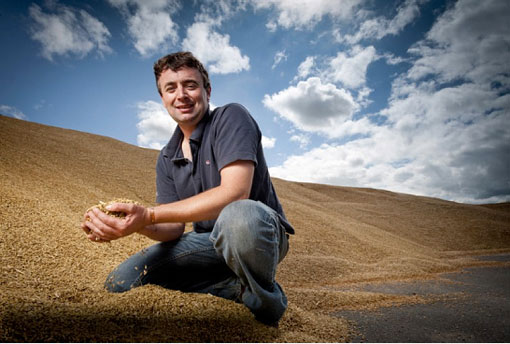Philip Reck prepares for early harvest

An early harvest is likely in sunny, south-east Ireland. Continued dry weather has had crops racing through their growth stages and we are about five days ahead of last year. The rain never reached the east and the eastern seaboard is dry.
This weather would be ideal at harvest, but we need rain to rectify soil moisture deficits. Disease levels have remained low all season, but cutting fungicide rates is still risky. It’s a long time until the harvest and the risks far outweigh the savings.
Spring barley will receive its final spray of Deuce and Diamant (epoxiconazole + pyraclostrobin + boscalid + fenpropimorph) and Bravo (chlorothalonil). The boscalid element gives improved straw strength which will be important as these crops are heavy. The high potash levels at drilling are now notable in the thickness of the barley stems. Potash helps reduce transpiration in the plant, reducing water loss through the leaves, so the plant is more resistant to drought. This helps to maintain yields when crops are stressed.
The JB Diego winter wheat will be sprayed with Gleam (metaconazole + epoxiconazole) and Amistar Opti (azoxystrobin + chlorothalonil). Dry weather has kept septoria, our main disease threat, at bay. Our changeable climate means a robust application at this timing is important to keep the crop disease-free. Mascani winter oats will be sprayed with Jenton (pyraclostrobin + corbel). Compared with other oat varieties it is slow to head out, but will still be the first crop to be harvested.
All these crops are looking tremendous and yield estimations remain good. And an early harvest will help with the establishment of cover crops for next year’s spring cropping.
• For more columns from other Arable Farmer Focus writers
